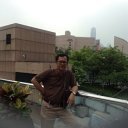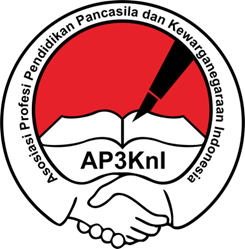The Role of Stakeholders in The Management of Sustainable Environmental Cleanliness in Makassar City
DOI: https://doi.org/10.26618/jed.v8i2.10551
Roles, Stakeholder, Management
Abstract
The purpose of this research was to examine the role of universities, business entities/private parties, urban village officers/pamong and non-governmental organizations as stakeholders in the management of sustainable environmental hygiene in the city of Makassar. Data collection was carried out using questionnaires through interviews and FGDs. Apart from that, documentation materials such as: program documents and reports on activities that have been carried out by each stakeholder are also used. Based on the results of the research, the stakeholders stated that there were 4 (four) categories of important roles and functions of environmental cleaning organizations in Makassar City, namely: (1) as a control function for urban environmental hygiene institutions, (2) these institutions are responsible for cleanliness of the Makassar city environment, (3) so that municipal solid waste can be managed efficiently and effectively, and (4) the existence of an environmental cleaning organization and functioning properly will be able to manage urban environmental cleanliness in a sustainable manner. The roles of universities, the private sector, government officials and NGOs as stakeholders in supporting local governments towards community empowerment show a tendency towards a low category. Based on the Fisher contingency test results, it can be concluded that there is a significant role for stakeholders in community empowerment in sustainable environmental hygiene management, especially urban waste.
References
A. S. Hornby and Sally Wehmeier (Ed.). (2005). Oxford Advanced Learner’s Dictionary of Current English (7th ed.). Korea TESOL Journal, 8(1), 135-141. https://www.academia.edu/29062327/Oxford_Advanced_Learners_Dictionary_of_Current_English
Agustang, Andi; Oruh, Shermina; Dody May Putra Agustang, A. (2023). Study of sustainable environmental sanitation management policies and programs in Makassar city. American Journal of Humanities and Social Sciences Research (AJHSSR), 7(3). https://www.ajhssr.com/archive/
Agustang, A. (2021). Filosofi Research Dalam Upaya Pengembangan Ilmu. In OSF Preprints (Issue 10.31219/osf.io/9n6za). OSF Preprints.
Agustang, A. (2023). Filsafat Ilmu Dan Metode Penelitian “Upaya Pengembangan Ilmu” (Andi Dody May Puta Agustang (ed.); 1st ed.). Yayasan Mitra Husada 2023.
Agustang, A., Oruh, S., & Agustang, A. D. M. P. (2022). Building Environmental Awareness Through the Makassar Eco-Brick Community Social Movement in Plastic Waste Management. SHS Web of Conferences, 149, 2005. https://doi.org/10.1051/shsconf/202214902005
Ahriani, A., Agustang, A., Adam, A., & Up, A. (2020). The multiple roles of women in poor household in urban communities. Journal of Advanced Research in Dynamical and Control Systems, 12(7), 134–138.
Bulle, S., Thapa, B., Raut, R., & Shrestha, S. (2001). Issues and Results of Community Participation in Urban Environment Comparative analysis of nine projects on waste management.
D. J. Bandaragoda. (2000). A framework for institutional analysis for water resources management in a river basin context. International Water Management Institute, Working Pa, 46p. https://www.iwmi.cgiar.org/publications/iwmi-working-papers/iwmi-working-paper-5/
Mueller-Glodde, U. (1994). Poor, But Stong: Women in the People’s Economy of Bangladesh. German Commission for Justice and Peace.
Race, D. and Millar, J. (2008). Social and Community Dimensions to ACIAR Projects. Australian Centre for International Agricultural Research, 33 pp. https://www.aciar.gov.au/publication/books-and-manuals/social-and-community-dimensions-aciar-research
Scott, W. R. (2001). Institutions and Organizations (FOURTH EDI). SAGE 2455 Teller Road. https://us.sagepub.com/en-us/nam/institutions-and-organizations/book237665#description




